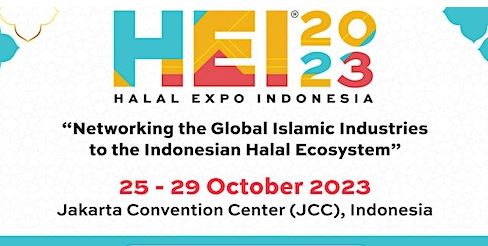Before Malaysia had dissolved its parliament on Monday, the government had allocated RM372.3 billion for Budget 2023. According to multiple media reports including Reuters, this is lower than an estimated RM385.3 billion but still an increase from RM332 billion for Budget 2022 and RM322 billion for Budget 2021. The 2023 Budget is guided by the 3Rs – Responsive, Responsible, and Reformist.
Finance minister Tengku Zafrul Aziz said in his speech that Malaysia’s economic growth rate for this year is expected to be moderate, between 4% to 5%. He also predicts economic growth momentum to continue even stronger for the third quarter of this year. Overall, the country’s economy is expected to grow better than last March’s projection of between 5.2% to 6.3%. Based on economic indicators that support the growth trend, Tengku Zafrul said the government revised the 2022 GDP projection to between 6.5% to 7%.
The 2023 Budget might have had a higher amount allocated compared to the past two years. But what does this mean for the business community?
1. Supporting locally produced goods
The government is allocating RM59 million to step up digitalisation and automation efforts, including the promotion of eCommerce activities under MATRADE, MARA, and MDEC. It is also allocating RM10 million for the Buy Malaysian Made Goods campaign to encourage the purchase of locally-produced goods. At the same time, the government is also setting aside RM15 million to empower franchise entrepreneurs under the Vendor 2.0 Capacity Development Programme and the Vendor 2.0 Research and Commercialisation Grant.
2. Funding local creative industry
The government has allocated RM102 million for a Digital Content Fund to market the products of artists and encourage the production of creative and new works. At the same time, the government is offering RM50 million for the National Film Production Fund to drive the local creative industry. To support industry players in creating high-quality creative content contributions to the National Film Community and Film Development Fund under FINAS will be tax-deductible. Malaysia will also exempt import duty and sales tax for studio equipment and filming productions. To continue showcasing the nation’s rich art and culture, the government is also beefing up its art, culture and heritage programme at the grassroots level by allocating RM25 million.
3. Tourism recovery
Approximately RM1 billion will be allocated for tourism recovery, including hotel rehabilitation, urban renewal, and heritage conservation. More specifically, RM200 million will be set aside for promotion and marketing. In particular, the government plans to focus on high-value tourists from niche market segments such as ecotourism, golf and scuba sports and international conventions.
When it comes to ecotourism, RM10 million will be set aside through a joint venture with a network of ecotourism operators. This will be used to upgrade the tourism attraction in Gua Kelam, Perlis; pioneer sustainable solid waste management efforts in Perhentian Island, Terengganu; and intensify activities at the Sultan Ahmad Shah Perak Jubilee Agricultural Park in Kuantan, Pahang.
To encourage Malaysian families to travel to destinations of their choice within the country, the government has allocated RM25 million to provide incentives to the people in the form of discounts, vouchers and rebates for accommodation, tourism packages, handicrafts and works of art up to RM100.
A total of RM90 million will also be provided in the form of matching grants for programmes such as the Malaysia Tourism Promotion Fund. As of July this year, Malaysia had 3.2 million tourist arrivals, bringing in an income of RM9.4 billion. In 2023, the government is eyeing the arrival of more than 15 million tourists with an income value of RM47.6 billion.
The funding limit for the Penjana Tourism Financing will increase from RM300,000 to RM500,000. A 100% tax exemption is also granted on statutory income for tour operators that bring at least 200 foreign tourists a year or handle at least 400 local tourists.
At the same time, the government has also allocated RM10 million to ThinkCity, an impact organisation that focuses on urban policy advisory, urban projects and venture building, to regenerate Kuala Lumpur’s city centre. To make Malaysia a major health tourism destination, existing tax incentives for the export of private healthcare services will be extended until 2025. At the same time, the Malaysia Healthcare Travel Council will also be provided with 20 million ringgit to strengthen Malaysia’s position as a destination of choice for health tourists.
4. Entrepreneurship and marketability
To encourage more women to increase their business capacity and improve marketing strategies, RM235 million in financing funds are available specifically for women under the Semarak-Nita BSN Scheme, Tekunita TEKUN, DanaNITA MARA, and Bank Rakyat’s Biz Lady.
In an effort to produce new talent, the Securities Commission and the Capital Market Development Fund will establish a Digital Innovation Fund involving RM30 million to increase the marketability of 9,000 graduates in the capital market. In addition, RM20 million was also provided to implement the Graduate Entrepreneur Program to benefit 1,000 graduates entering the field of entrepreneurship.
5. Sustainability
The government is allocating RM1.5 billion to support the realization of 17 sustainable development goals and RM330 million for its Government Green Procurement, in addition to providing EV infrastructure. Malaysia will also provide RM70 million to continue improving the level of sustainability of the palm industry, including encouraging the recycling of palm waste materials. According to Tengku Zafrul, the government will also intensify its efforts to promote and campaign against anti-palm oil at the global level.
The government is committed to achieving net-zero greenhouse gas emissions as early as 2050. To encourage green investment, it has proposed to extend the incentive application period for Green Tax Allowance and Green Income Tax Exemption until 31 December 2025. This will be done by increasing the incentive period from three to five years for eligible green activities.
Meanwhile, the guaranteed value for the Green Technology Financing Scheme will be increased to RM3 billion until 2025. The scope of financing will also be expanded specifically to the EV sector with a guaranteed limit of up to 60%, and the financing of the waste sector will be increased to 80%.
As a soft loan, Bank Negara Malaysia will provide RM1 billion under the High and Green Technology Financing Fund to support innovative sustainable technology start-ups and RM1 billion under the Low Carbon Transition Financing Fund to help SMEs implement low carbon practices. Through the Impact Fund, Khazanah Nasional will provide RM150 million to boost the development of environmentally friendly projects including supporting the carbon market and restoration of degraded forests.
To increase the collection of plastic waste, companies that make donations or sponsor smart AI-drive reverse vending machine equipment are eligible for income tax deductions. The government intends to introduce a carbon tax and will study the feasibility of a carbon pricing mechanism. In support of this, the government will provide RM10 million as a matching grant to help prepare carbon assessments for SME companies and eligible related products.
At the same time, to boost flora and fauna protection, the government will increase the allocation of the Ecological Fiscal Transfers for biodiversity conservation to RM100 million annually, an increase of RM30 million. To ensure that wildlife and its forest habitats continue to be preserved, the government has set aside RM36 million for the protection programme for tigers, elephants and other wild species.
By increasing the allocation to RM39 million, the number of community rangers who control the biodiversity of forest areas will be increased from 800 to 1,000 rangers and employed from among the local community, especially the natives and veterans. To improve, clean and treat rivers throughout the country, a total of RM16 million will be set aside to implement conservation projects including in the Merang River Estuary, Terengganu and the Perak River Estuary.
6. GLC and GLIC to invest in the national economy
GLC and GLIC will invest up to RM50 billion next year as a contribution to the national economy. About RM1.3 billion will be set aside to invest in venture capital to support start-up companies and entrepreneurs. Also, RM1.35 billion will go to food security projects to push the sustainability agenda.
GLC and GLIC will also make a domestic direct investment of up to RM45 billion and these investments, according to Tengku Zafrul, are important for economic recovery. The EPF will create more than 6,000 job opportunities with a total investment exceeding RM3 billion until 2025. Also, through the Menara Merdeka 118 project, PNB will bring a gross development value of over RM10 billion to create up to 4,000 new job opportunities.
Next year, Khazanah Nasional will invest RM1 billion under the Impact Fund, of which RM230 million will be reserved for investment in locally owned high-tech companies. This fund will support more locals to gain experience working with multinational companies by setting up their own technology companies, such as SkyeChip. To encourage such companies to generate their own patents, the government also plans to extend tax incentives for intellectual property development until 31 December 2025. To encourage more investors to contribute to economic activity through capital funding in companies receiving investment, the tax incentives will be extended until 31 December 2026.
7. Promotion of digital activities
Through MDEC, the government will spearhead digital efforts and turn the Urban Transformation Centre (UTC) into a digital hub. Among them, transactions at UTC will be carried out cashless while promoting various digital activities such as esports and coding for the benefit of local youth.
To help the unemployed through job matching, the Government will develop 13 MYFutureJobs Satellite Centers in UTC across the country with an allocation of RM8 million. In addition, HRD Corp and PERKESO will also establish a National Placement Center in the Klang Valley as a one-stop centre that helps people get jobs. SOCSO will also increase the number of Employment Service Case Managers to support the hard-working unemployed looking for work.
Digital Marketing Asia is back for its 10th year! 10 years of exclusive insights, experience sharing and great success stories. Join us for three days of hyper-focused presentation topics across six tracks on 15 – 17 November. Click here to register now!
8. Boosting the halal industry
Malaysia’s halal industry is projected to generate RM56 billion in export income by the year 2025. To fuel the development of the halal industry, the government has set aside RM92 million for the Halal Hub Center Development Project in Tanjung Manis, Sarawak. About RM59 million has been allocated for the project which is expected to be completed next year.
Meanwhile, RM8 million has been set aside for the Malaysia Services and Halal Global programme to promote halal products in the global market, while RM6.5 million has been allocated to implement halal industry development initiatives to increase compliance with halal certification and adapt halal innovation.
The government has also introduced the Halal Waqf PKS OKU, setting aside RM2.5 million to implement an onboarding programme for individuals with disabilities who want to venture into the field of halal business.
9. Digital connectivity
Under the second phase of the National Digital Network (JENDELA) project, the government will provide full Internet coverage in populated areas and provide fibre optic coverage to nine million premises nationwide by 2025. This initiative involves a total investment of RM8 billion including contributions from the industry. For the year 2023, the JENDELA initiative will provide RM700 million to implement digital connectivity in 47 industrial areas and nearly 3,700 schools.
Tenaga Nasional will also pioneer the implementation of the Rural Internet Project by optimising the electrical cable network to provide high-speed broadband facilities. This project will benefit over 60,000 rural residents and is supported through a matching grant of RM25 million. For the year 2023, Digital Nasional (DNB) will expand the 5G network throughout the country to cover 70% of highly populated areas. DNB plans to implement infrastructure expenditure worth RM1.3 billion in 2023.




